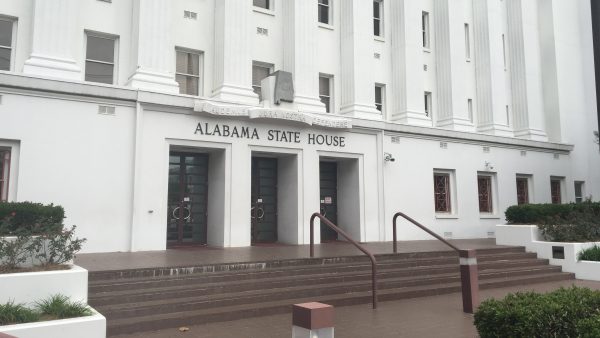Legal Expert Talking School Resegregation and More
Schools across the country and especially in the South are resegregating, according to several recent studies. Mark Dorosin, managing attorney for the University of North Carolina School of Law Center for Civil Rights, along with other presenters, will address this trend and more in Birmingham today.
WBHM’s Sherrel Wheeler Stewart spoke with Dorosin. Listen to their conversation above or read some key excerpts below.
Changing Demographics of Schools in the South
“We’re seeing in North Carolina and throughout the South a growing and a troubling trend of resegregation, racial isolation, and the concentration of low-wealth students. What we have seen over the last 20 years is the federal courts and the federal government have really withdrawn from pushing for and continuing to promote desegregation. So we have seen school systems return to racial and socio-economically isolated student bodies.”
The Impact of Resegregation
“Anybody who is concerned about the quality of education our students are receiving in schools should be concerned. Well-documented research shows that when schools lack diverse student bodies and when they are segregated, they are less able to provide the full range of benefits that a K-12 education ought to include.”
Potential Challenges, Potential Remedies
“There are avenues legally and through advocacy to be pursued. The courts have become less friendly to civil rights claims, and particularly claims around segregation in education. In order to make a claim, you have to prove intentional discrimination. The courts have not completely closed the window. School districts can make race-conscious decisions. School boards can take race generally into account in school assignments or when deciding where to build a school. The challenge for advocates is to demand that schools boards make the issue of diversity a priority.”
This discussion will be part of Fulfilling the Promise of Brown at the North Birmingham Public Library (2501 31st Avenue North) from 9 a.m. to 4 p.m. A town-hall-style conversation is scheduled for 6 p.m.
The economy slowed in the last 3 months of the year — but was still solid in 2025
The U.S. economy grew 2.2% in 2025, a modest slowdown from 2.4% the previous year. GDP gains were fueled by solid consumer spending and business investment.
Ali Akbar, who’s sold newspapers on the streets of Paris for 50 years, is now a knight
For decades, Ali Akbar has sold papers on the Left Bank of Paris. Last month, France gave the beloved 73-year-old immigrant from Pakistan one of its highest honors — and his neighborhood is cheering.
Bill limiting environmental regulations goes to the governor’s desk
President Trump has taken steps to roll back environmental regulations. Some of that same action is taking place in statehouses, including Alabama's. Lawmakers gave final passage this week to a bill that would ban the state from enacting environmental rules more stringent than those at the federal level. That's where we start our weekly legislative update with Todd Stacy, host of Capitol Journal on Alabama Public Television.
For years the Taliban told women to cover up in public. Now they’re cracking down
At hospitals, at seminaries and on buses, the Taliban is stepping up enforcement of rules on women's dress in the city of Herat.
What I learned watching every sport at the Winter Olympics
Sit down with pop culture critic Linda Holmes as she watches the 2026 Winter Games. She is exhausted by cross-country, says "ow ow ow" during moguls, and makes the case, once and for all, for curling.
Scientists worry about lasting damage from Potomac sewage spill
Drinking water around the District of Columbia hasn't been contaminated. But scientists say the environmental damage could be severe.






